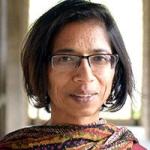Smart Cities: India’s Urban Future

In late June, the Indian government launched an ambitious and forward-looking urban program, a centerpiece of Prime Minister Modi’s developmental agenda. The Smart Cities Mission will involve building state-of the-art new cities and modernizing old ones. It has generated reams of newsprint and massive anticipation. India is urbanizing rapidly and haphazardly, and is expected to add four hundred million new city dwellers to its urban population over the next three decades.
Rethinking Internal Security in India

The ambush of Indian Army forces in Manipur, signing of a peace accord with the NSCN-IM in Nagaland, and Gurdaspur attacks have put internal security at the center of Narendra Modi’s agenda. India has a long history of dealing with armed groups, whether Naxalites, tribal separatists, or Kashmiri militants. Yet many of the lessons of India’s experience are consistently ignored in the popular and policy discourses on how to respond to armed groups. This history reveals important insights that have received insufficient attention.
Creating an Effective Regulatory Regime for Medical Devices in India

Nearly a decade after the Government of India first announced its intentions to regulate the domestic medical device industry and after many interim, patchwork guidelines, a comprehensive draft National Medical Device Policy (NMDP-2015) has been issued and made public for review by interested stakeholders. Medical devices form a $200 billion global industry, which develops and manufactures essential healthcare equipment ranging in complexity from simple devices like thermometers and stethoscopes to complex devices like pacemakers, ultrasound machines and surgical robots.
Unholy Hatred: Lucknow’s Sectarian Violence and A Way Forward

Violence between Sunni and Shia Muslims in India has persisted for just over a century. Yet, the phenomenon has received far too little attention by political scientists, journalists, and Indian policymakers, who have almost exclusively focused on Hindu-Muslim violence. Continued neglect and delay in devising creative interventions aimed at reducing sectarian conflict could jeopardize the social cohesion of India, which will have more Muslims than any other country by the 2020s.
The Middle Powers’ Congruence: India, France, and Nuclear Technology

Prime Minister Narendra Modi’s visit to France in April 2015 – his first visit to a European country – highlighted New Delhi’s burgeoning ties with Paris, underlined India’s attempts to diversify its defense purchases, and re-emphasized the congruence that has existed between the two countries during most of the Cold War. France has gradually emerged as a formidable technology supplier to India in all three strategic realms: defense, space, and nuclear energy.
Unpacking Wealth Inequality: A Case for Individual Level Data Collection

Discussions of wealth inequality are now in vogue following the global financial crash of 2007 and Thomas Piketty’s best-selling Capital. This is a welcome departure from the exclusive focus on poverty using calculations based on consumption surveys. Wealth is crucial for consumption smoothing and acts as a buffer to draw upon during times of distress. In many ways, wealth is more aligned with the concept of wellbeing than income or consumption. Wealth is also recognized for its role in creating opportunities for future generations.
Will China’s Coal Boom Continue in India?

India is the focus of much international attention leading up to the UN’s climate negotiations in Paris later this year. India expects to more than double the size of its coal fleet by 2030, following a carbon-intensive industrialization path experienced by almost every major economy, most recently China.
Nepal: A Manifesto for Political Reform

Nepal was hit by a devastating earthquake on April 25th, and aftershocks – including a powerful one on May 12th – have continued to rock the country. Over eight thousand people have died. Over 600,000 houses are completely destroyed or partially damaged. Eight million people have been affected in some shape or form. Thousands of school buildings lie in ruins. Kathmandu has lost much of its cultural heritage. The tragedy is just unending, as millions remain homeless with monsoon season four weeks away.
Friends of CASI Program
Friends of CASI
Mission Statement
Founded in 1992, the Center for the Advanced Study of India (CASI) at the University of Pennsylvania is the first research institution in the United States dedicated to the study of contemporary India. A national resource, it fills an urgent need for objective knowledge of India’s politics and society, rapidly changing economy, and transformation as both an ancient civilization and major contemporary power.
